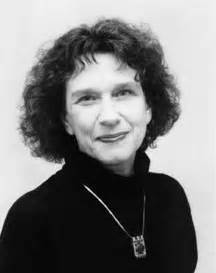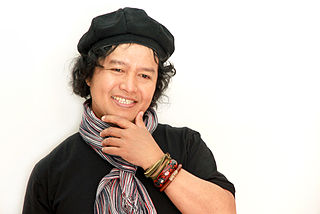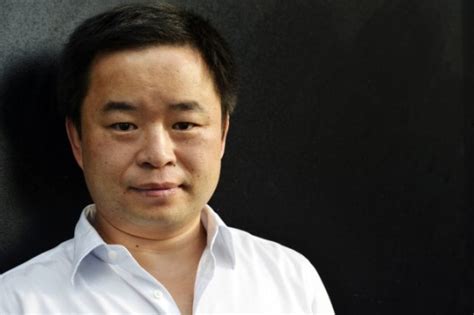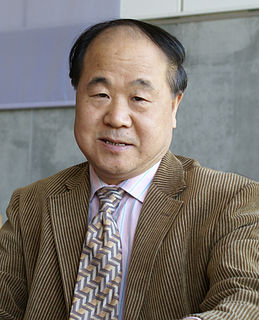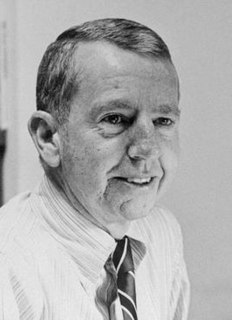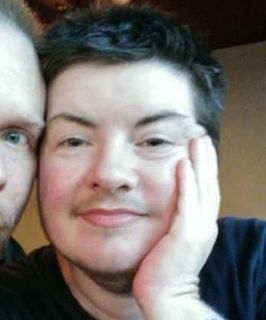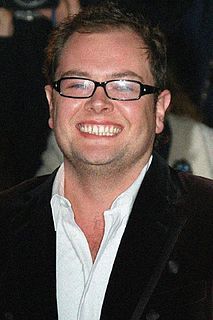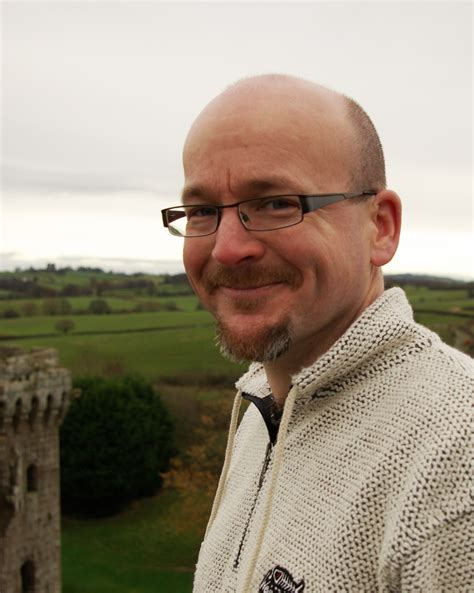Top 1200 Writer's Voice Quotes & Sayings
Explore popular Writer's Voice quotes.
Last updated on December 18, 2024.
Every writer knows that when you're imitating somebody - you know, you're sounding like Faulkner - you're doing pretty good, but your life in Hoboken isn't Faulkneresque. So you get that kind of shortfall between the actual experience of the writer and the things he's hungry to express and the voice itself.
My commodity as a writer, whatever I'm writing about, is me. And your commodity is you. Don't alter your voice to fit the subject. Develop one voice that readers will recognize when they hear it on the page, a voice that's enjoyable not only in its musical line but in its avoidance of sounds that would cheapen its tone: breeziness and condescension and clichés.
Oh, I love labels, as long as they are numerous. I'm an American writer. I'm a Nigerian writer. I'm a Nigerian American writer. I'm an African writer. I'm a Yoruba writer. I'm an African American writer. I'm a writer who's been strongly influenced by European precedents. I'm a writer who feels very close to literary practice in India - which I go to quite often - and to writers over there.
I haven’t had trouble with writer’s block. I think it’s because my process involves writing very badly. My first drafts are filled with lurching, clichéd writing, outright flailing around. Writing that doesn’t have a good voice or any voice. But then there will be good moments. It seems writer’s block is often a dislike of writing badly and waiting for writing better to happen.
There are no words and there is no singing, but the music has a voice. It is an old voice and a deep voice, like the stump of a sweet cigar or a shoe with a hole. It is a voice that has lived and lives, with sorrow and shame, ecstasy and bliss, joy and pain, redemption and damnation. It is a voice with love and without love. I like the voice, and though I can't talk to it, I like the way it talks to me. It says it is all the same, Young Man. Take it and let it be.
The voice is certainly important and you can hear if it's beautiful or not, it's the gods who decide; it's more a question of what you do with the voice, which is the mysterious element. It's the personality behind the voice which makes the artist. The voice is a gift of God, but if you're not able to use this gift, what's left? Nothing but a beautiful voice, without nuance or color.
It's great to win a few prizes early on. It helps a writer to get noticed and to get some sales. It can also be a pain in the arse because it gets in the way of the quiet, contemplative time every writer needs, but which is particularly important when you are a new writer finding your own voice, and pursuing the things that interest you.
There's this message to comedians in particular, that you shouldn't write it, and a television writer should write it. And that's a prevailing conventional wisdom that I think is really wrong. That's not to say that television writers aren't great, but I think that the belief that some comedy writer's going to be able to capture your voice is naive.
An excess of development can undermine the most ephemeral but distinctive tool a writer possesses: authorial voice. A writer's voice is as individual and marked as a thumbprint, and is a playwright's truest imprimatur. It is as innate as breathing, and can be as unique as any genetic code. By its very singular nature, it is seldom born in the act of collaboration. True authorial voice always pre-dates the first rehearsal of a text. And it is - and will always be - an author's most distinguishing and valuable feature.
Like Hemingway and Faulkner, but in an entirely different mode, Fitzgerald had that singular quality without which a writer is not really a writer at all, and that is a voice, a distinct and identifiable voice. This is really not the same thing as a style; a style can be emulated, a voice cannot, and the witty, rueful, elegaic voice gives his work its bright authenticity.
My abject hatred of actors and the acting world. I went to college as an actor, and halfway through, I switched to playwriting and directing. Then I spent a couple years working in publishing, doing some freelance journalism for The Village Voice and Musician magazine. I thought my life was going to be as a writer, but then I realized I missed performing, so I got into comedy. It was a nice combination of things I was sort of good at. I was a pretty good writer and a decent actor, but I didn't really like acting, and I didn't have the discipline to be a writer.
In this land of unlimited opportunity, a place where, to paraphrase Woody Allen, any man or woman can realize greatness as a patient or as a doctor, we have only one commercial American filmmaker who consistently speaks with his own voice. That is Woody Allen, gag writer, musician, humorist, philosopher, playwright, stand-up comic, film star, film writer and film director.
There are certain writers I can't read when I'm trying to write because their voices are so distinct. Cormac McCarthy, he's the most different writer from anything I've ever written, but there's something about those really spare sentences that is just tough - it would be too much of an influence. Grace Paley is my favorite writer. Her stuff is so voice-driven, when I read her a lot I want to make my writing more voice-y and dialogue-heavy. I love a lot of stuff in translation.
I think Don Henley is a brilliant contemporary rock writer. He would have been a fabulous poet if he weren't a musician. He was a literary major, and not only that - he's gifted with a brilliant voice. To me, Don could sing the New York City Yellow Pages and I'd buy it. I just love the sound of his voice.
One of the most useful parts of my education as a writer was the practice of reading a writer straight through - every book the writer published, in chronological order, to see how the writer changed over time, and to see how the writer's idea of his or her project changed over time, and to see all the writer tried and accomplished or failed to accomplish.
In a sense my whole life as a writer is trying to find structural ways, or formal ways, to permit that outflowing so it doesn't just look like crazy output. In other words, if it turns out that you can do a given voice, that's just kind of inclination. But then if you can find a way to put that voice in a story so that the voice serves a purpose, then I would say that's being a writer.
I do not believe that it is necessarily the duty of the writer to give a voice to his community. If a writer is true to his vocation, to his or her vocation, the very process of creativity enlarges these human horizons. It provides insights, even when you're not writing, when your writing's not dealing with a concrete political situation.
What is absolutely true is that any good [Television] series has a specific voice. And I think that voice is almost exclusively the domain of the executive producer. . . . As a staff writer you're not being called upon to be the great creative person. You're sort of called upon to understand the characters and their voices and put them through certain paces.





